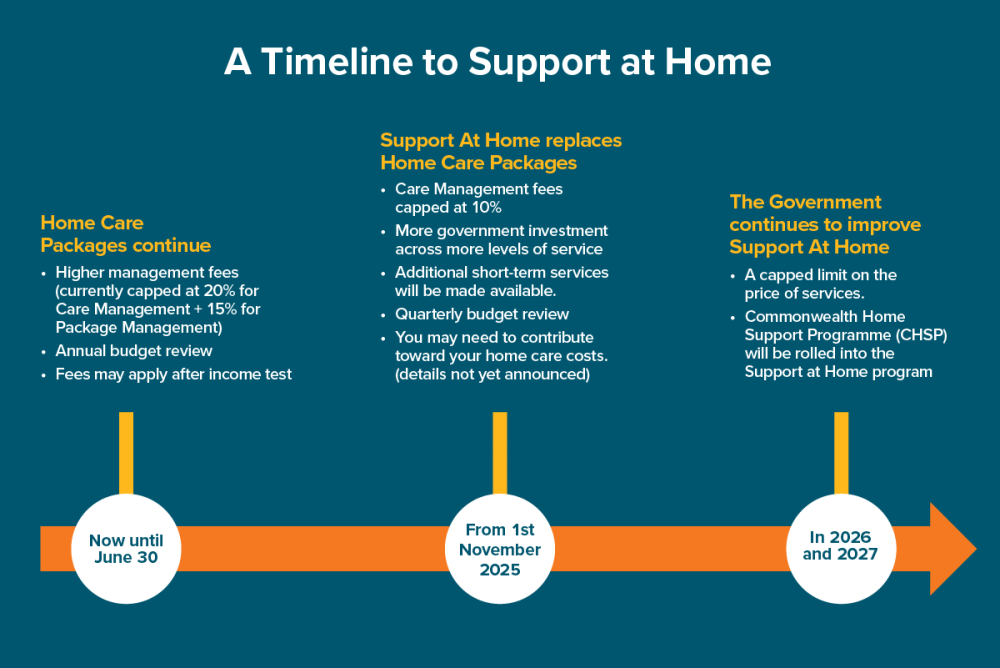All About Home Care Solutions for People With Disabilities: NDIS Registered Assistance
Home treatment services under the NDIS play an essential function in supporting individuals with handicaps. These services are created to improve day-to-day living via customized assistance, ranging from personal like movement support. Understanding how to navigate these options can be complicated. This review explores the various elements of NDIS home care, from offered services to the choice of providers, highlighting vital considerations for those seeking assistance. The journey toward encouraged treatment starts right here.
Understanding the NDIS and Its Function
The National Impairment Insurance Coverage System (NDIS) serves as a transformative framework designed to give assistance and solutions for people with impairments. Established to boost the quality of life and assurance equitable accessibility to crucial sources, the NDIS empowers participants by using customized strategies tailored to their one-of-a-kind demands. It intends to foster independence, making it possible for individuals to pursue their personal goals and aspirations.Through an organized strategy, the NDIS allocates financing for different assistances, consisting of education and learning, employment support, and neighborhood involvement. This comprehensive scheme not just concentrates on instant treatment yet also emphasizes long-lasting developmental end results. By advertising choice and control, the NDIS urges individuals to choose their recommended service companies, assuring that treatment lines up with their values and preferences. Eventually, the NDIS stands for a substantial dedication to improving the lives of people with disabilities, cultivating inclusivity, and building a much more helpful society.
Kinds of Home Treatment Solutions Available
Different sorts of home care solutions provide to people with specials needs, primarily focusing on personal treatment aid and reprieve care alternatives. Personal treatment aid gives crucial support with day-to-day tasks, while reprieve treatment uses momentary alleviation for primary caretakers. Comprehending these services is vital for ensuring the health of both individuals with handicaps and their family members.
Personal Care Assistance
While maneuvering every day life can present challenges for individuals with handicaps, individual treatment help offers important support tailored to their distinct needs. This kind of home treatment service encompasses an array of activities developed to advertise self-reliance and boost lifestyle. Individual care aides help with day-to-day tasks such as bathing, dressing, brushing, and toileting, making certain individuals preserve individual hygiene and comfort. They may also assist with dish preparation, medication monitoring, and movement assistance. By offering customized treatment, these specialists encourage people to engage more completely in their social tasks and day-to-day routines. Overall, personal treatment support plays a considerable duty in cultivating self-respect and autonomy for those with disabilities, permitting them to grow in their home environment.

Break Care Options
Break care works as a crucial source for family members and caregivers of people with specials needs, providing short-lived relief from the needs of everyday caregiving. This kind of solution can take various kinds, consisting of at home respite care, where skilled specialists visit the home to aid with care jobs. Households may choose for facility-based reprieve treatment, where individuals obtain care in a specialized environment, enabling caretakers to take a break. In addition, some companies supply emergency situation reprieve solutions for unpredicted scenarios. These alternatives not just aid ease caretaker stress and anxiety however also advertise the health of people with disabilities by using them brand-new experiences and social interaction. In general, break care plays an essential duty in sustaining both caretakers and those they take care of.

How to Accessibility NDIS Home Treatment Providers
Accessing NDIS home treatment solutions includes understanding the eligibility requirements stated by the National Special Needs Insurance Coverage System. Individuals must browse a structured application procedure to safeguard the necessary support tailored to their demands. This section will certainly make clear both the eligibility requirements and the actions involved in making an application for services.
Eligibility Requirements Explained
To get approved for NDIS home care solutions, people should fulfill visit the site details qualification standards that assess their demands and circumstances. First, candidates have to be matured between 7 and 65 years and have a considerable and permanent handicap that influences their capacity to execute day-to-day tasks. Additionally, they need to be an Australian resident, a permanent citizen, or hold a Protected Special Classification Visa. The NDIS requires evidence of the special needs, commonly with medical analyses or records. Additionally, people need to show that they require assistance to join social and economic life. These standards guarantee that solutions are routed towards those that genuinely require help, promoting self-reliance and enhanced top quality of life for individuals with disabilities.
Application Process Actions
Can I Choose My Own Support Employees With NDIS?
The individual asked whether they might select their own assistance employees under the NDIS framework. Generally, participants have the flexibility to choose support employees, fostering customized treatment that straightens with their certain requirements and preferences.
What Occurs if My Requirements Modification After Getting Support?
If an individual's needs modification after obtaining support, they should communicate these modifications to their company. Modifications can be made to the treatment plan, making sure that the assistance stays relevant and effective for their scenarios.

Exist Limits on The Number Of Hours of Treatment I Can Receive?
The private asked about possible limitations on the variety of treatment hours received. Typically, such limitations may exist based upon details plans or moneying arrangements, highlighting the value of evaluating arrangements and guidelines frequently.
Can I Utilize NDIS Funding for Home Adjustments?
The question of making use of financing for home adjustments emerges often. Normally, individuals might utilize NDIS financing for essential modifications to their homes, making certain ease of access and safety and security, contingent upon meeting particular qualification criteria and standards.
Just how Do I Take care of Grievances Concerning My Home Care Solutions?
To address issues regarding home treatment services, individuals need to initially document their problems. After that, they can interact directly with their provider, seeking resolution, or escalate the problem to pertinent oversight bodies if needed. Home treatment services under the NDIS play a critical function in sustaining people with impairments. Different kinds of home treatment services provide to people with impairments, mainly focusing on personal treatment assistance and respite care alternatives. home care package providers. Individual treatment help provides vital assistance with day-to-day activities, while reprieve care supplies short-lived relief for primary caretakers. Households might decide for facility-based reprieve care, where individuals get care in a customized setting, allowing caregivers to take a break. Exactly how can family members properly handle the monetary elements of home treatment services for people with specials needs?